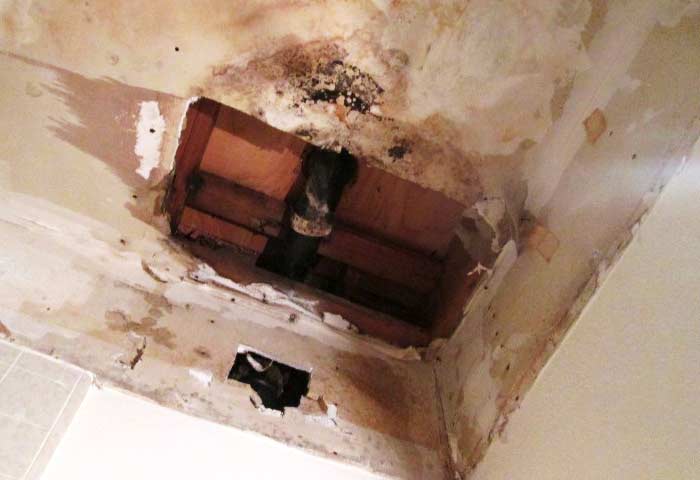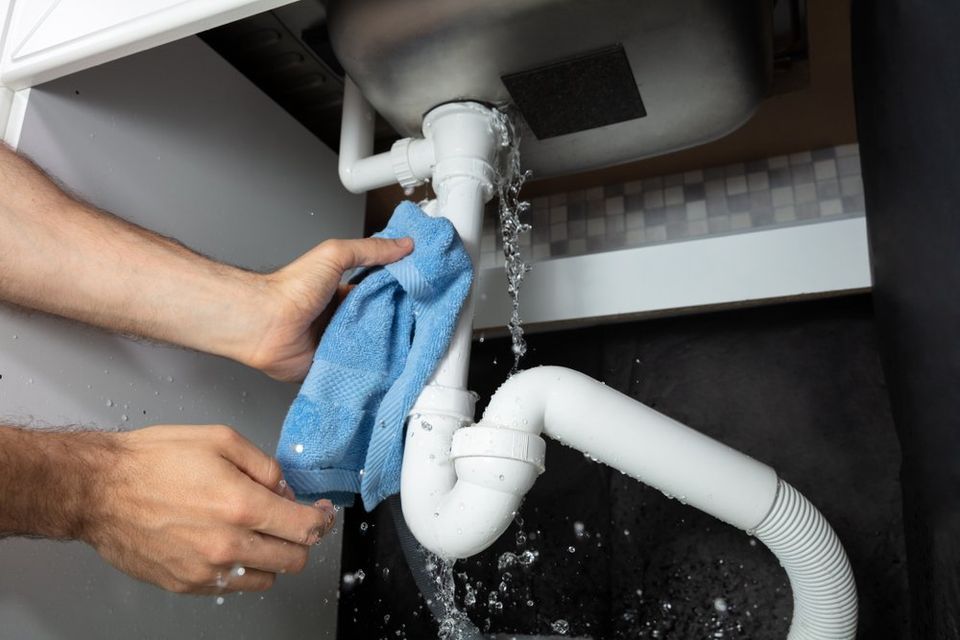Tips on How to Maintain Your Septic Tank: What You Need to Know
Tips on How to Maintain Your Septic Tank: What You Need to Know
Blog Article
Each person is bound to have their unique thinking about Quick Tips To Help Deal With Water Damage.

What should you do if a water pipe bursts in your home, producing a mini-waterfall and also swamping an area of your home? In this situation, you need to act quickly. The longer you wait, the extra severe the water damage in your home. When an emergency similar to this takes place, clearheadedness is vital. For these reasons, you need to learn what to in case of a burst water pipe. Because time is of the essence, examine out the adhering to pointers listed below to aid you act quick.
Shut down the Key Waterline Shutoff
Look for the neighborhood shut-off shutoff to turn-off water in one particular area just. This will cut off the water in your entire home. Usually, the major shutoff is found outside the residence following to the water meter.
Call Water Damage Reconstruction Pros for Assistance
After closing the water source, call the pros for aid. With their specialist help, you can alleviate exacerbation since water can permeate through your things resulting in deformed baseboards, loosened floor tiles, or damage framework.
Record the Damage For Insurance policy
As you are waiting for the pros to arrive, document the damages created by the errant pipe. Staying positive with this permits you to submit a claim for coverage, which will assist you and also your family get back on your feet.
Restore Things That Can Be Conserved
As soon as you're done taking images, peruse the items and secure one of the most vital ones from the pile. Dry them off and try to preserve as much as you can. Drag them away from wetness so they can begin to dry out.
Begin the Drying Refine
Lastly, while waiting on the pros, you can start the drying out procedure. The good news is, water from your waterlines are tidy so you do not need to bother with sewage system water. The flowing water might have disrupted the dust and debris in your carpets and also floorboards. Be prepared with gloves as you utilize buckets to dump out the water. Then, remove as high as you can with old towels. You can likewise switch on an electric fan or open home windows to advertise air flow. This will quicken drying and hinder mold and mildew as well as mildew growth.
Specialists are the only ones certified to take care of the burs pipes and also subsequent damages. You will normally see red flags like bubbling paint, unusual noises in the plumbing, stuffy odor, caving ceiling, peeling wallpaper, or water spots.
What should you do if a water pipe bursts in your house, producing a mini-waterfall and swamping an area of your residence? For these reasons, you require to learn what to in instance of a burst water pipeline. After shutting the water resource, call the pros for help. With their specialist help, you can alleviate exacerbation due to the fact that water can leak through your things resulting in distorted baseboards, loose tiles, or damages structure. Luckily, water from your waterlines are clean so you don't have to stress regarding sewage system water.
How to Handle a Burst Pipe and Minimize Damage
Steps to Take Ahead of Time
If you own property in an area that experiences cold weather, you need to be aware of seasonal maintenance tasks that will help you protect your property as the weather changes each year. One of the most important steps is to winterize your pipes to ensure they won't freeze or burst when the temperature drops. This includes action items like insulating any exposed pipes, detaching garden hoses and covering outdoor faucets. If the weather gets cold enough, you may even consider leaving a faucet dripping or opening cabinet doors during the coldest parts of the day.
No matter how prepared you might be, accidents and emergencies still happen. You'd be wise to set up a savings account specifically for your property so you have a "rainy day" fund set aside for unexpected expenses. All homes—regardless of age, location or condition—will inevitably need some form of emergency repair.
Steps to Take for Frozen Pipes
A frozen pipe will not necessarily burst, so if you can catch a frozen pipe early on, you could save yourself a major headache. When your area experiences frigid temperatures, be sure to check your plumbing and keep an eye out for warning signs like faucets only releasing small amounts of water or toilets not refilling when flushed. If you do run into one of these issues, you're likely dealing with a frozen pipe.
If this happens, your first step should be to cut off the water supply to that section of the plumbing. Expanding and freezing water can quickly cause damage. Even if the water supply is shut off, you will likely still deal with some leaking from the water that defrosts after the pipe has thawed. Be prepared with a mop, bucket and/or towels to quickly soak up any excess water.
In order to thaw a frozen pipe, you can use a space heater, infrared or incandescent heat lamp, or even a hairdryer to warm up the frozen area. Heat tape is also an option and should be used according to manufacturer instructions. Do not use any sort of open flame to thaw frozen pipes, as it poses a major fire hazard and can damage your pipes further.
Steps to Take for a Burst Pipe
Water damage claims are the second most common insurance claim in the U.S. When you're dealing with a frozen pipe, the water continues to expand as it freezes, which creates pressure that can cause a pipe to burst. When this happens, the crack or leak in the pipe allows water flow from the pipe to enter your home where it shouldn't. If a pipe does burst, you need to act quickly to mitigate property damage and repair cost.
Your very first step should be to shut off your main water supply to minimize flooding—typically the most expensive damage to address. Once you've shut off the water supply, make sure you identify the entire area that has been impacted by the leak. Remove as much water as possible—as quickly as possible—using a mop, sponges, towels or a shop vacuum or wet/dry vacuum. To prevent long-term damage due to moisture build-up, run a dehumidifier or fan in the affected area. Contact a licensed plumber to ensure the pipe is correctly repaired before running any water to that section of the home again. Burst pipes and the associated water damage are something you absolutely want to avoid as a property owner. If you've had to learn your lesson the hard way, don't let yourself get caught in a similar situation during the next spell of cold weather. The best way to deal with frozen or burst pipes is to prevent them in the first place—proactive winter maintenance will save you time, money and a whole lot of stress.

Do you like reading up on Do’s And Don’ts In Case Of Water Damage? Write a short review below. We will be glad to hear your responses about this page. In hopes to see you back again later on. Please take a moment to share this blog post if you liked it. I am grateful for your time. Kindly check our blog back soon.
Report this page